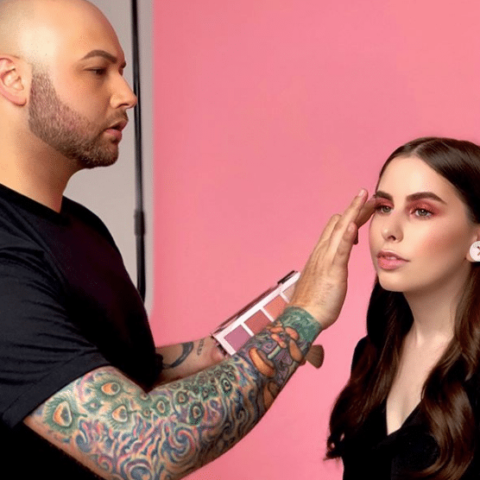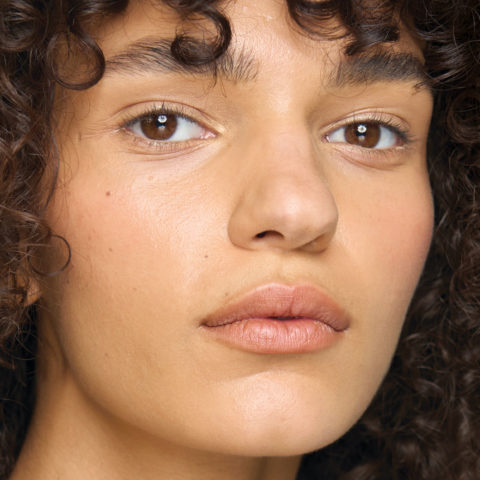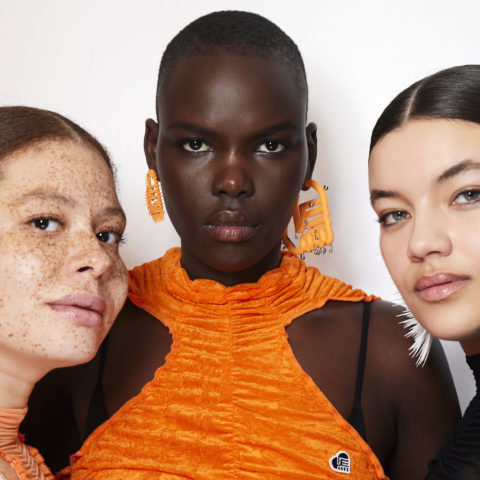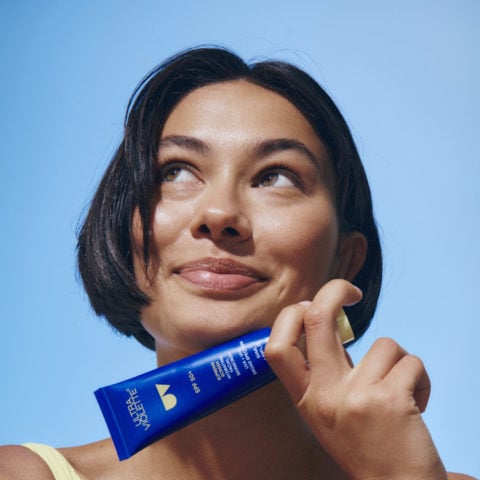Steve Kassajikian, Urban Decay’s Global Makeup Artist, On Instagram Makeup, RuPaul’s Drag Race and More
Steve Kassajikian, Urban Decay’s Global Makeup Artist for the past decade, is the funniest makeup artist on Instagram. Seriously. A quick glance at his page and it’s obvious that his sense of humour is a perfect match for Urban Decay, a brand that’s always been bold, playful and boundary-breaking. Want proof? We interviewed Urban Decay co-founder Wende Zomnir for the brand’s 20th anniversary a few years ago, and she told us about her determination to maintain the brand’s authenticity and rebellious nature. “The HR people send out these emails that sound so corporate,” Zomnir told us. “I’m like, ‘Stop! You can’t say things like that!’ I really want to be in denial that we’re a big brand.”
So when we found out Kassajikian was in town for TIFF this year, we jumped at the chance to talk to him.
What’s the coolest thing your job has allowed you to do?
“Last year when we did a campaign with some RuPaul’s Drag Race queens and I loved them so much. While they were performing they pulled me on stage to dance with them.”
Who’s your favourite Drag Race contestant?
“My all-time favourite is an old school girl from season two, Raven. She’s RuPaul’s makeup artist now. I also love Kimchi, Valentina…Kimchi knows how to paint. I love Pearl, too.”
With the beauty industry growing as rapidly as it is, how do you think Urban Decay has managed to stand out?
“I think Urban Decay has always been ahead of its time. When it launched in ‘96 it was really out there, breaking boundaries. It was not the norm. It was letting people know that you don’t have to follow rules to be beautiful. In the ‘90s it was all pink and pastels, but Wende was big into grunge and she really wanted to break the barrier and go against what femininity was at the time. Urban Decay was the first prestige brand to sell online and then as we kept evolving, we always tried stay true to our roots and always maintained an edge. As we grow, we’re changing as a brand, to remain flexible. Because years ago, the brand would’ve seemed like it only catered to a certain category of women or men, and now we’re really there for everybody.”
Do you see the discontinuation of the Naked Palette as an extension of the evolution of the brand?
“It was sad because I was there when it launched and it was really revolutionary. No other product did what the palette did. For the brand it really took us to the next level. It changed the game and I don’t know where Urban Decay would be today if it wasn’t for that palette. But, as Wende says, all good things must come to an end. It’s time to take the brand to new places. We have to evolve. We can’t just keep relying on that one palette because back then, we really were the innovators but now, there’s so many other brands and there are new palettes launching multiple times a month. It lived a good eight years.”
Do you think Wende is the reason the brand still has an “indie” feel despite its staggering success?
“One hundred per cent. It’s all because of Wende. A lot of brands become so big but they kind of lose their visionary along the way, but we haven’t. Not only has she been such a big part of the brand, she’s been so hands on with the brand. And everything we launch and do has to come from her and be approved by her. I think that’s why we’ve never lost our “beauty with an edge” mantra or never lost who the brand is. And I tell people that even though we’re this big massive brand now, under the L’Oreal umbrella, it still feels like a small family to me because she’s still portraying that within the brand.”
How do you think drag has influenced the makeup industry?
“Drag queens have always been influential. Especially now, on social media, the way makeup is done is the way a drag queen does her makeup. Maybe it’s a little more toned down, but with the contour, and the baking, and the cut crease, now makeup artists are using it more as an art rather than just enhancing their natural features. Drag has really influenced the way people do makeup now. They were the first ones to really do that type of makeup. But now it’s become so mainstream that whenever I see influencers and bloggers doing their makeup, I know that’s exactly how a queen transforms her face. I feel like so much inspiration comes from them but they always get no credit. That’s why I thought it was so amazing last year when we got to work with some of the girls and I hope we continue to. They really need a bigger platform. Look at how huge and mainstream Drag Race has become. That’s where this generation and Gen Zs of the world are looking to for makeup inspiration. Even the girls that are competing are getting so much more progressive with makeup as well. I think the makeup industry is going to become more progressive from it too.”
What’s the best piece of beauty advice you’ve ever been given?
“Wende’s always told me not to use makeup to cover flaws. She says to use it to express individuality and show off key features that wouldn’t normally be considered beautiful. That kind of changed the way I perceive makeup because if someone has a unique thing about them, I now enhance that instead of mask it.”
How has Instagram changed the way that you do your job?
“So much. When it first came out it was just a platform where you got to share your favourite photos with your friends. You didn’t really pay attention to what the photo looked like, what you wrote about it, what you tagged. Now, it really is more strategic. You have to be really cautious about what you’re posting. Is the quality of the photo good? What are you saying? You have to be aware of who you’re tagging and who sees it. So, it’s become more of a business platform than just a hobby. I kind of miss when it was so easy and fun and it was just a cool place to go on to and check what people were posting.”








